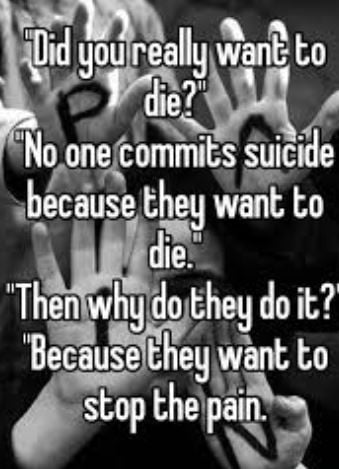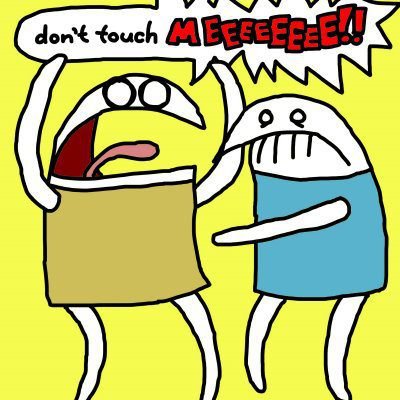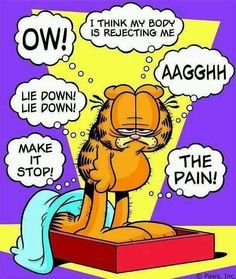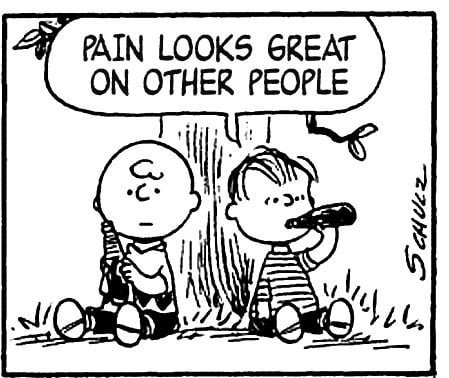
Recent years have brought an endless stream of rules, regulations, and demands from governments, doctors, and pharmacies meant to battle the evils of opiate addiction. What was once between a chronic pain sufferer and his primary care physician is now a multi-person group fuck. I don’t blame doctors or pharmacists. Government has forced upon them numerous rules that make it harder and harder for chronic pain sufferers to receive relief.
I am required to see my primary care doctor every three months to continue to receive narcotic medications. I currently take Vicodin (Hydrocodone), five tablets per day. Three scripts at a time are sent to the pharmacy. I can’t fill the prescriptions early. They must be filled on the day listed on the script. This means you are typically out of medication on the day you fill your prescription. Of course, if you don’t get to the pharmacy at the right time or they are OUT of your medication, you are screwed. Long-term narcotic pain meds users are not addicts. They are, however, physically dependent on narcotics. When pain medications are suddenly stopped, the patient goes through horrific withdrawals.
Last year, the pharmacy I use was out of Vicodin. Well not “out.” They had enough of the drug to give me a partial fill, but according to the pharmacist, CVS was not permitted to give patients partial fills for narcotics.
“Fine. Please transfer my prescription to another pharmacy.”
“I’m sorry, but we are not allowed to do that either.”
“You do know what happens if I suddenly stop taking Vicodin”?
“I understand, but there’s nothing I can do. We won’t have any Vicodin until Wednesday (four days).”
This was on a Saturday. My prescribing doctor was out of town until Monday. I knew calling the on-call doctor was a waste of time. He would think I was a drug-seeking addict.
Fortunately, I only went without Vicodin for thirty-six hours. I borrowed some Percoset from a dear friend of mine to tide myself over. Of course, doing so was a crime. On Monday, my primary care doctor was able to fix the problem for me by sending the script to a different pharmacy.
Keep in mind ALL narcotic prescriptions are tracked with software. All doctors and pharmacists have access to this system. It is IMPOSSIBLE to abuse legally prescribed narcotics. I can’t think of one way a patient can game the system. Scripts are no longer handwritten. They are transmitted digitally, straight to the pharmacy. The prescriptions can’t be filled early. There’s simply no way for me to abuse the narcotics I take five times time a day. Yet, here I sit tonight, unable to fill my August 8th prescription until August 13th.
My doctor prescribes me a thirty-day prescription of one-hundred-fifty tablets every twenty-nine days. This means I have an extra five tablets each month. Five. Not twenty. Not fifty. Five. These five tablets provided me a monthly buffer in case of a pharmacy problem or I have a really, really, really, really, really bad pain day. Five tablets. Unbeknownst to me, the pharmacy was tracking these five extra tablets, and today was the magic day when they decided to bring the hammer down on me.
The pharmacy will not automatically fill a narcotics refill. Even though my doctor digitally sends the script to them, I must call them to have it filled. That’s what I did today, only to find out that they would not fill my prescription until August thirteenth. Five days of no medication. I have nine tablets on hand, so I have to cut my medication by seventy-five percent — two tablets a day. Why? Five tablets. Five tablets each month for six months is thirty tablets, the pharmacist informed me. I tried to explain things to her, but it mattered not. All she saw is what she called a “retention issue.” Those tablets I “retained” were actually used when needed. Long-term chronic pain sufferers learn to manage their narcotic meds, adapting usage to pain levels. None of this matters. Fundamentalism rules supreme when it comes to prescribing pain medications. “These are the rules. Obey. Don’t obey, we will punish you.”
Will the War on Chronic Pain Sufferers Ever End? I ask in the title of this post. Death, that’s what will put an end to this pernicious war against chronic pain sufferers. Patients who have their medications suddenly cut off have a higher risk of suicide. Despair sets in when you think, and often know, no one is listening to you. Allegedly, the goal of the medical profession is to alleviate pain and suffering. My primary care doctor had that as his goal when I first started seeing him twenty-seven years ago. And he still does today. The only difference, of course, is that twenty-seven years ago no one stood between us. Today, the FDA, the state of Ohio, pharmacies, pharmacists, and insurance companies stand between us, materially affecting the prime directive: alleviate pain and suffering.
It remains to be seen how the next five days will go. Polly is fearful that I might kill myself, but I told her as she left for work, “Don’t worry. I’m fine.” She asked me “Why aren’t you more upset over this?” I replied, “I have no control over any of this. None! Yes, I am angry, beyond angry, but all the rage in the world won’t change the fact that my prescription will NOT be filled until August thirteenth.”
My singular goal is to make it to the thirteenth. Will one tablet every twelve hours, lots of Tylenol, and aspirin be enough to stave off the worst of withdrawal? I doubt it, but what else can I do? Maybe drink Jamison for breakfast, lunch, and dinner?
I plan to take a drive to Michigan where marijuana is legalized. According to state law, I can’t legally buy cannabis, but Michigan dispensaries will sell it to Ohio residents. Rumor has it that the Ohio sheriff’s departments that border Michigan — particularly Williams and Fulton — are using off-book undercover officers to write down the license plate numbers of Ohio residents who dare to visit Michigan dispensaries. Yes, indeed. Crimes of the century are taking place just over the state line.
Writing helps distract my mind from my ever-present pain, so if you see a flurry of new posts, you will know why.
Bruce Gerencser, 66, lives in rural Northwest Ohio with his wife of 45 years. He and his wife have six grown children and thirteen grandchildren. Bruce pastored Evangelical churches for twenty-five years in Ohio, Texas, and Michigan. Bruce left the ministry in 2005, and in 2008 he left Christianity. Bruce is now a humanist and an atheist.
Connect with me on social media:
Your comments are welcome and appreciated. All first-time comments are moderated. Please read the commenting rules before commenting.
You can email Bruce via the Contact Form.




